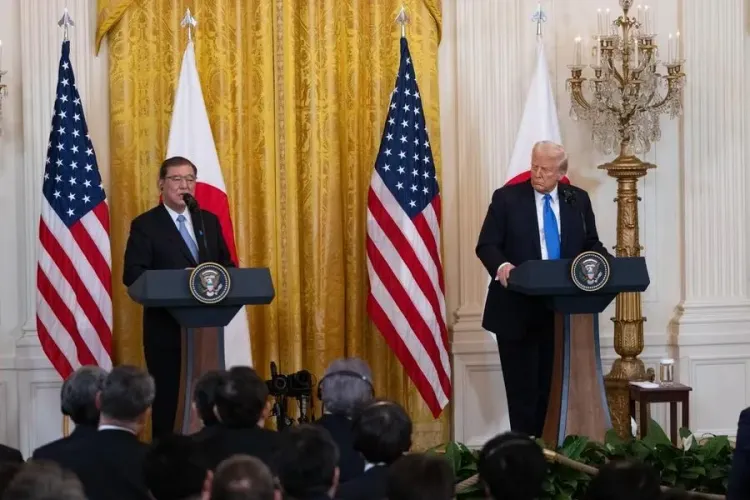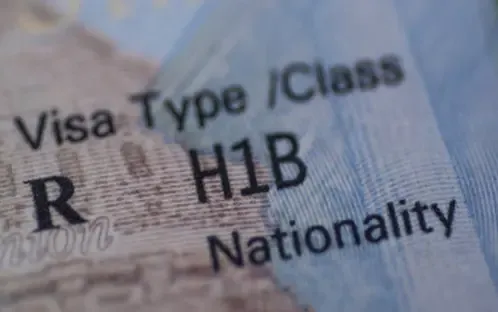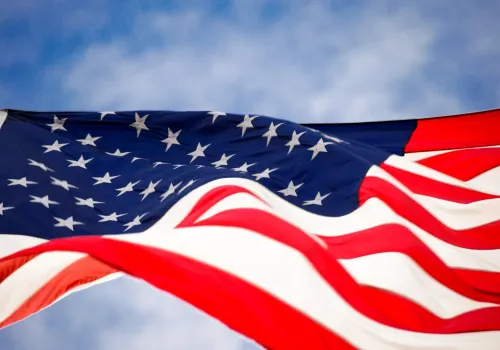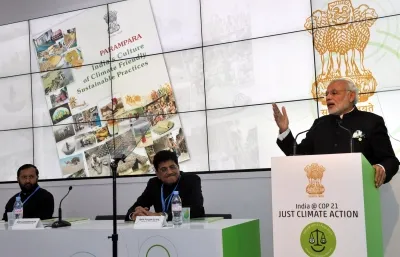Why Does Japan's PM Ishiba Regret Trump's New Tariff Decision?

Synopsis
Key Takeaways
- The US has imposed a 25% tariff on Japan.
- Prime Minister Ishiba expressed disappointment over the tariff.
- Negotiations between the US and Japan will continue.
- The tariff could impact Japan's export-driven economy.
- Trump's letter warned against retaliatory tariffs from Japan.
Tokyo, July 8 (NationPress) Japanese Prime Minister Shigeru Ishiba expressed his disappointment regarding US President Donald Trump's announcement of a 25 percent tariff on Japan, describing it as "truly regrettable". He emphasized that discussions between the two nations will persist with the aim of establishing a deal that benefits both sides.
During a meeting of the tariff task force, Ishiba reiterated the government's commitment to safeguarding national interests in upcoming trade negotiations, vowing to take all necessary measures to lessen the impending tariff's impact on Japan's export-driven economy.
"We are dedicated to engaging in negotiations with the United States to seek a mutually beneficial agreement while prioritizing our national interests," Ishiba stated.
He attributed the sluggish progress in trade discussions to the government's cautious approach, avoiding rash compromises while asserting essential demands.
On Monday, Trump confirmed the introduction of a 25 percent tariff on goods imported from Japan, effective August 1, while cautioning that any increase in tariffs by Japan would provoke a corresponding response from his administration.
This new levy, marginally above the 24 percent "reciprocal" tariff declared on April 2, will be in addition to existing sector-specific tariffs, which include a 25 percent duty on vehicles and auto parts and 50 percent duties on steel and aluminum. Trump delivered the new tariff rate in a letter to Ishiba, shared via social media.
On the same day, Trump also revealed new tariff rates for 13 other nations, including 25 percent for South Korea, 30 percent for South Africa, 35 percent for Serbia and Bangladesh, 36 percent for Thailand and Cambodia, and 40 percent for Myanmar and Laos.
Earlier, on July 7, Trump began dispatching tariff letters to various countries, announcing a 25 percent tariff on goods from Japan and South Korea starting August 1.
The US President made the announcement on his social media platform, Truth Social, where he shared copies of the letters.
These letters urged Japan and South Korea against retaliatory tariff increases, warning that such actions would lead to higher import taxes from the US.
“If you decide to raise your tariffs for any reason, the increase you choose will be added to the 25 percent we impose,” Trump cautioned in the letters addressed to Ishiba and South Korean President Lee Jae-myung.










